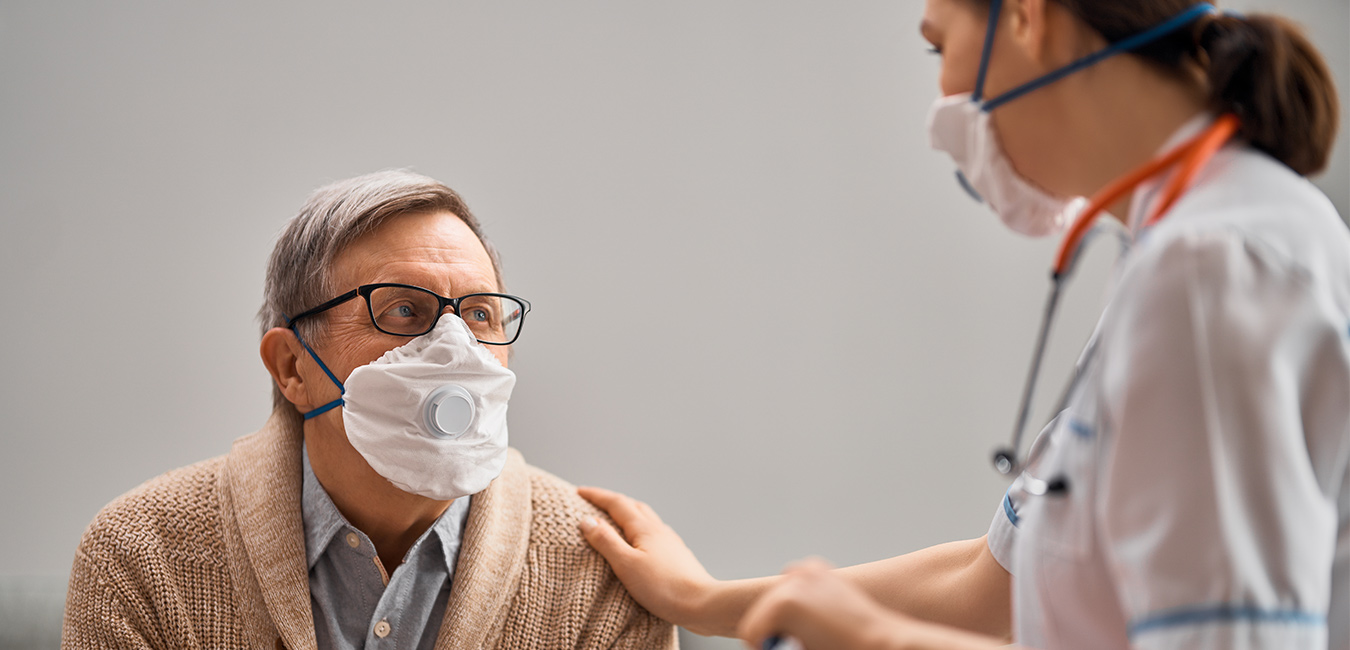Since COVID-19 started spreading around the world earlier this year, doctors have realized that it is especially dangerous for people with heart problems and risk factors for heart disease like high blood pressure.
COVID-19 mostly affects the lungs, but when the lungs don’t work well, it puts a strain on the heart. If you already have a heart condition, high blood pressure, diabetes, or obesity, you are at a greater risk for having serious problems with COVID-19 if you become infected with the virus. If you “catch” COVID-19, you are more likely to become very sick, need to go to the hospital, and have a higher risk of dying.
Researchers from the University of Pennsylvania recently showed that patients with severe COVID-19 have a higher incidence for cardiac arrest—when the heart just stops working—and heart rhythm problems (arrhythmias).
That’s why it’s so important for people with heart problems to try to prevent infection with COVID-19 in the first place. To stay free of the illness and the possible consequences:
- Wash your hands a lot with soap and water for at least 20 seconds. Use an alcohol-based hand sanitizer with at least 60% alcohol, if you can’t get to a sink.
- Do not touch your face, especially eyes, nose, or mouth.
- Disinfect surfaces like doorknobs and light switches frequently.
- Stay home as much as possible.
- When you must go out, practice “social distancing”—keep at least 6 feet away from others.
- Wear a face mask that covers your mouth and nose when you are near other people.
It’s also very important for you to lower your chances for heart problems from COVID-19 by reducing all the major risk factors for heart disease and stroke. Here are the basics of a heart-healthy lifestyle:
Aim for a plant-based diet.
Load up on fruits and vegetables, whole grains like oats and whole wheat pasta, lean sources of protein, and limited amounts of added sugar and salt to help decrease risk factors such as inflammation, high cholesterol, high blood pressure and/or high blood sugar levels. Eat red meats and full-fat dairy products rarely—not as part of your daily diet.
Get moving!
With your doctor’s approval, exercise for 20-30 minutes, 5-7 days a week. Even gardening and housework count towards the goal.
Stop smoking.
You can reach a counselor specially trained to help smokers quit by calling 800-QUIT-NOW (800-784-8669). This number connects you to your state’s quitline.
Get and keep a healthy weight.
Find some useful tips here!
Lessen your stress.
Yoga and meditation are very good ways to lower stress. But just listening to the peaceful sounds of nature or taking several long, deep breaths during the day can help. Or play music that lifts you up. These measures are very important for managing the stress you might be feeling during the pandemic.
Also, if you have high blood pressure, high cholesterol, heart disease, or diabetes, be sure to keep taking the medications your doctor has ordered for you to prevent future problems.
Finally, fear of contracting COVID-19 may keep people from going to the hospital. Do not avoid medical care for an any symptoms of a heart attack or stroke. You could literally save your life or your loved one’s by immediately by calling 911 to get emergency care for chest pain or discomfort, trouble breathing, confusion, weakness (especially on one side of the body or face), or even for just “not feeling right”. Getting quick medical treatment could help prevent long-term, life-changing complications.
Death rates from heart attack go up in patients who don’t take symptoms seriously and don’t call 911. Take good care of you! You’re worth it!

